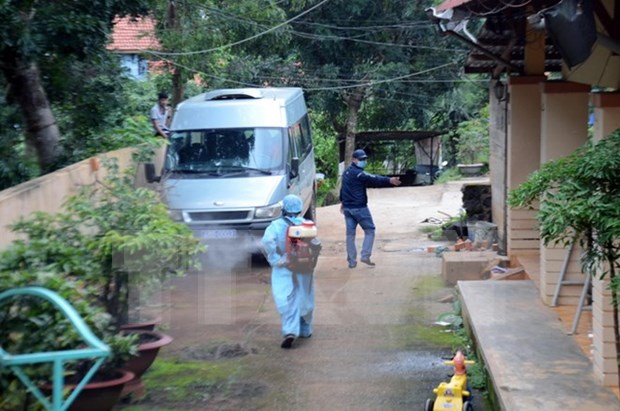Hanoi health sector works to prevent epidemics
The health sector of Hanoi has built a monitoring system for early detection of epidemics across the locality as part of efforts to improve the city’s capacity to prevent and control diseases.
 Medical workers fumigate a residential area (Source: VNA)
Medical workers fumigate a residential area (Source: VNA)Hanoi (VNA) – The health sector of Hanoi has built a monitoring system for early detection of epidemics across the locality as part of efforts to improve the city’s capacity to prevent and control diseases.
The sector has focused on increasing major supervision systems in hospitals at district and city levels as well as central hospitals located in the city, while keeping a close watch on newly-emerging diseases and dangerous epidemics for early detection and settlement.
It has implemented a project to enhance the efficiency of the supervision and early warning system to make quick response to a number of fatal communicable diseases in Hanoi until 2020.
At the same time, the sector has made a preventive medicine training plan, focusing on teaching health workers at all levels how to prevent and deal with epidemics. It has also exchanged information on epidemic supervision while strengthening the application of information technology, modernising the database management, and improving the forecast system.
Health care programmes in Hanoi have proven effective. After 30 years, the expanded immunisation programme has provided vaccines against eight dangerous diseases to 99 percent of under-one-year-old children in the city.
Since 2014, 98.2 percent of children between 1-14 years old and 95.5 percent of children at the age of 16-17 have received measles-rubella vaccines, while 97.2 percent of children in high-risk areas have got shots against Japanese encephalitis.
The city has cut the crude birth rate to 15.8 births per 1,000 persons, while decreasing the ratio of third child to 7.13 percent and reducing the number of under-five-year-old malnourished children to 9.2 percent. In addition, 92.63 percent of communes across the city have met national medical standards.
Hanoi has also formed well-equipped mobile teams for epidemic prevention and control with the aim to prevent any pandemics from spreading in the community. It has also effectively implemented national target programmes against major social and dangerous diseases, including HIV/AIDS.
Deputy Director of the municipal Heath Department Hoang Duc Hanh held that the sector should continue its efforts to prevent the outbreak of dangerous diseases, adding the city should enhance the quality of national health standards in line with new criteria of the Ministry of Health.
Hanoi strives to have 17 more communes meet the standards in 2016, raising the total number to 558, or 95 percent and reaching 100 percent in 2017, he said.-VNA













